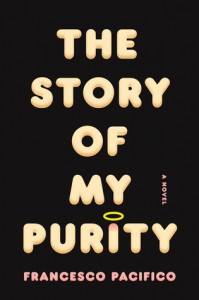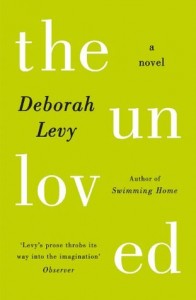 Title: Exit West (Goodreads)
Title: Exit West (Goodreads)
Author: Mohsin Hamid
Published: Hamish Hamilton, 2017
Pages: 240
Genres: Magical Realism
My Copy: Hardcover
Buy: Amazon, Book Depository, Kindle (or visit your local Indie bookstore)
Every so often a book comes along that gets you thinking about an important social issue in a whole new light. These are the books I actively seek out, I am always looking for literature that is going to challenge my thinking or even teach me something new. Mohsin Hamid’s latest novel Exit West was a recent example of a book doing this with the topic of refugees. This is such an important issue and Hamid got me thinking about it in a different way with the simple introduction of magical doors.
The premise of Exit West is straightforward following the budding relationship between Saeed and Nadia in an unnamed country. As the novel tracks their developing relationship, it soon becomes apparent that they will need to escape. As the city they grew up in becomes increasingly unsafe, they are soon planning to leave everything behind. Through a door and into another country.
While the concept of these doors might be inspired by Nanina, Mohsin Hamid has stated he used this idea as a way to not get bogged down with the refugee journey. He wanted to explore the story as the events that lead these characters to flee and how it felt to be a refugee in Western culture. While I understand his reasoning, the idea seemed to work differently for me as the reader. The magical journey to another country gave off this idea that Western media do not care about the journey they only care about asylum seekers in their country. It worked to symbolise that missing piece that is often left out of the news when reporting on the refugee crisis.
In an interview with the author, he said the doors also where a symbol of globalisation. In today’s world we are able to talk to someone on the other side of the world face to face with video calling programs like Skype. The world seems smaller thanks to the advances of technology and while the idea of walking through a door into another country sound wonderful, it works as a motif for the complex issue of border control. Some doors are heavily guarded and other doors, like the one to their home country, are left accessible as if to invite them to ‘go back to where they came from’.
What I think Mohsin Hamid did really well in this novel was use the character focus to challenge the perceptions people might have of the refugee stereotype. Nadia wore an all concealing black robe in public not for religious reasons but to make her feel safe. Nadia is not religious and lives alone, she had to lie and said she was a widow to get her apartment. Nadia’s story is one of protecting herself from judgement while trying to explore her own sexuality. She longs for the freedom and individuality of the Western world. While Saeed is not overly religious he is the one that wants to wait to they are married. When fleeing the country he wishes to be part of the community of fellow countrymen, he does not want to give up on his traditions.
The two different points of view allows the reader to explore the idea of refugees from their perspective. Rather than focusing on the journey and the conflict with the Western world. Exit West focuses on their personal identity, as the characters try to understand their place in the world. For Nadia this is a chance for a new beginning, to reinvent herself but for Saeed this is the story of missing what he left, the nostalgic idea he had of his homeland.
Mohsin Hamid intentionally left the country and city unnamed because this could be the story of anyone. He did model it after a city in Pakistan but worried that mentioning any names might have been viewed as a political statement rather than the story he wanted to tell. I am so glad that I picked up Exit West and I know I will be dipping into more of Hamid’s works. This novel was so accessible, I feel like everyone should pick it up, in the hopes that it will get more people thinking about refugees.

 Title: The Story of My Purity (
Title: The Story of My Purity ( Title: The Unloved (
Title: The Unloved ( Title: The Circle (
Title: The Circle ( Title: NW (
Title: NW (